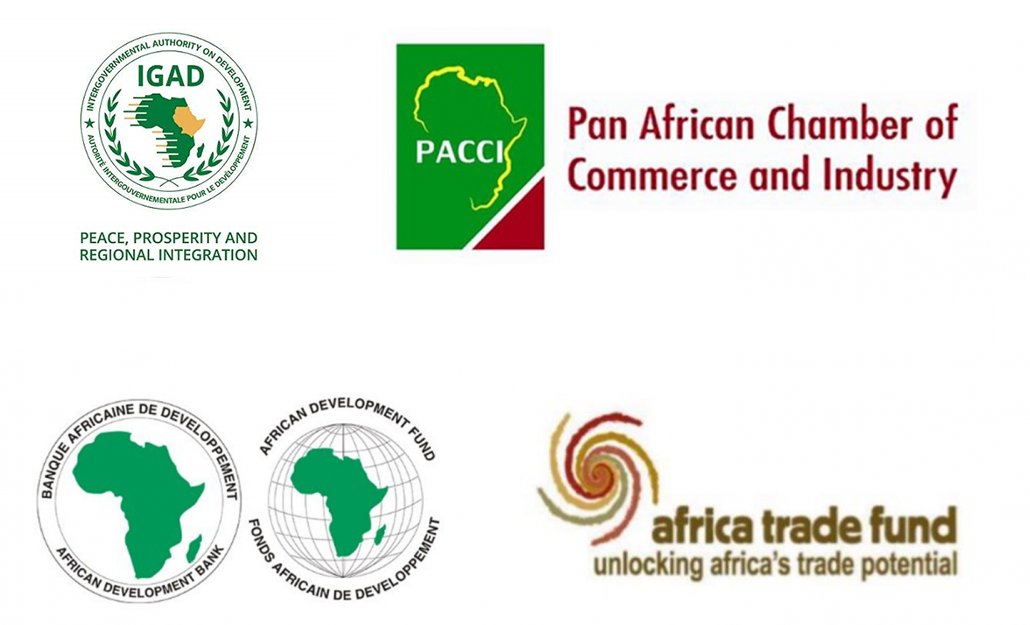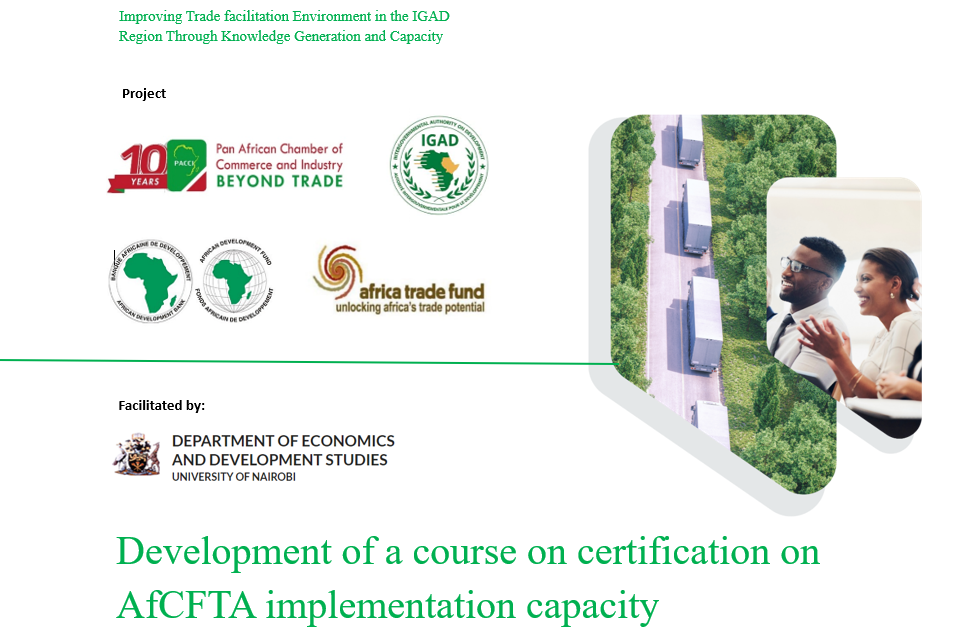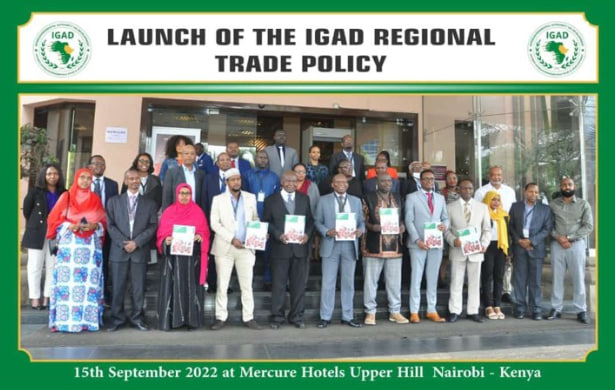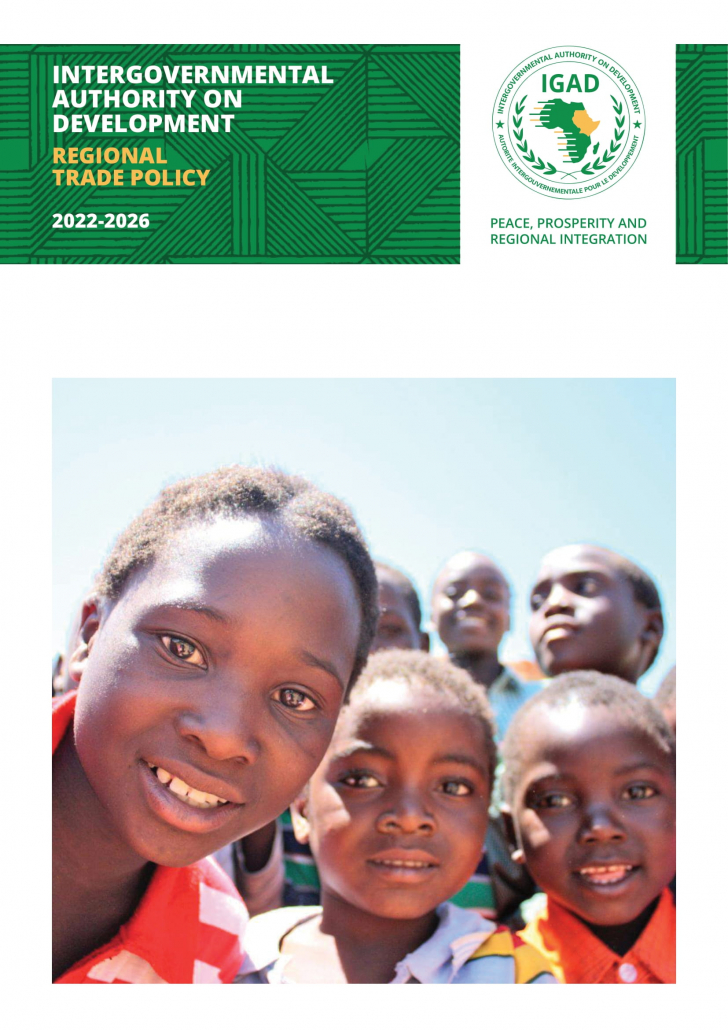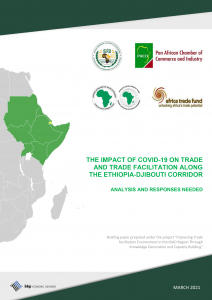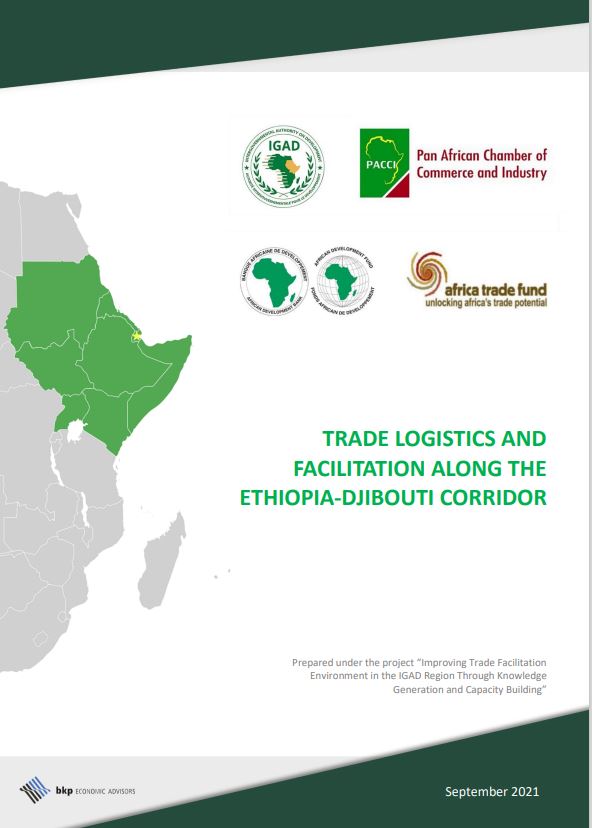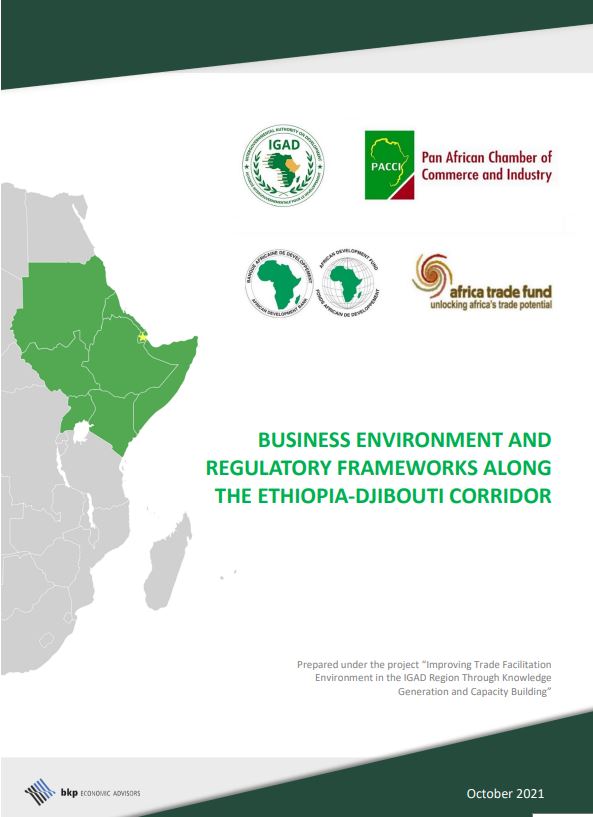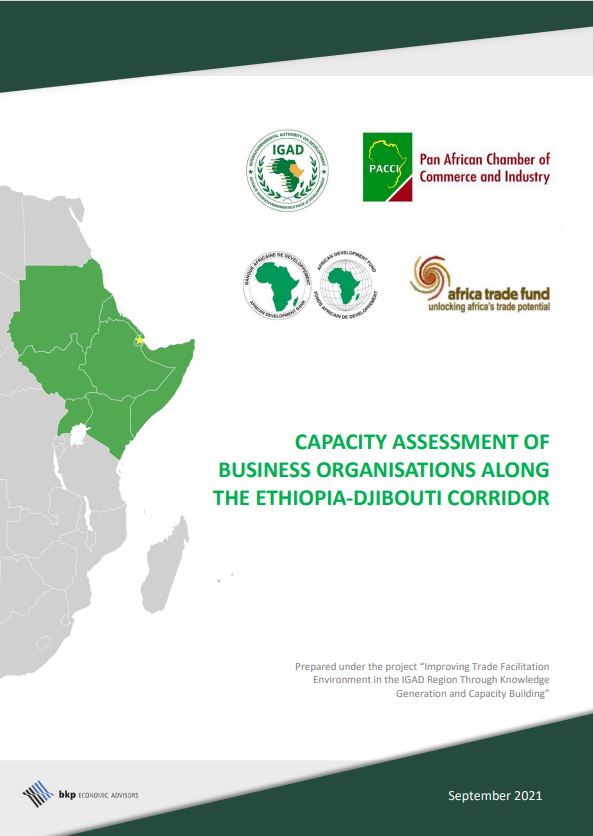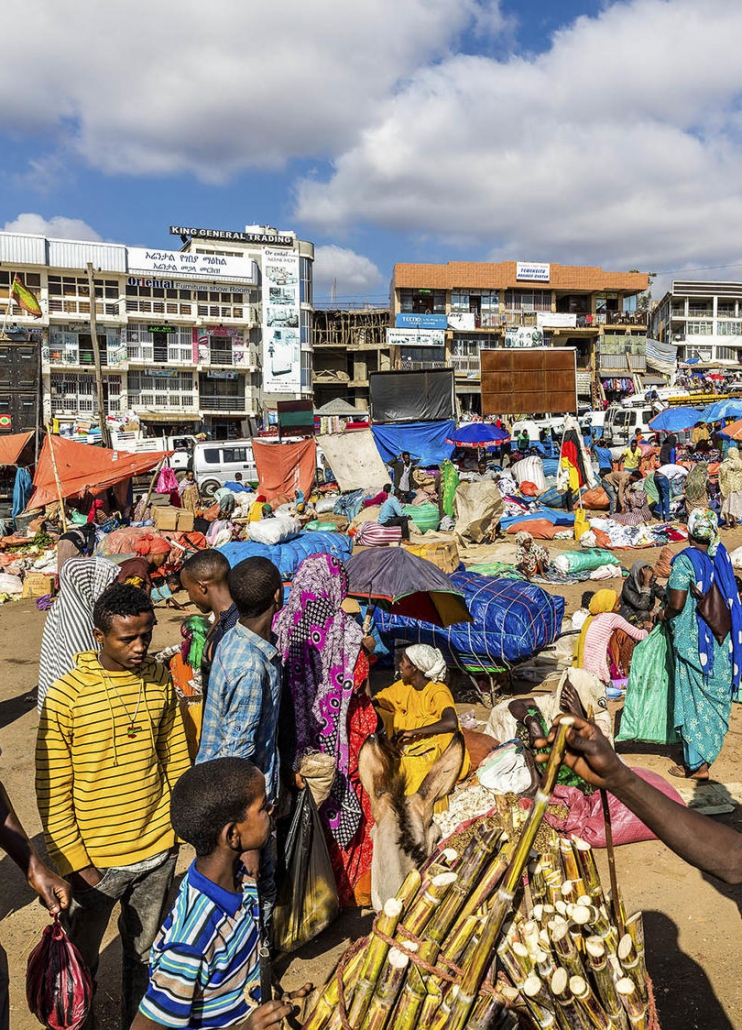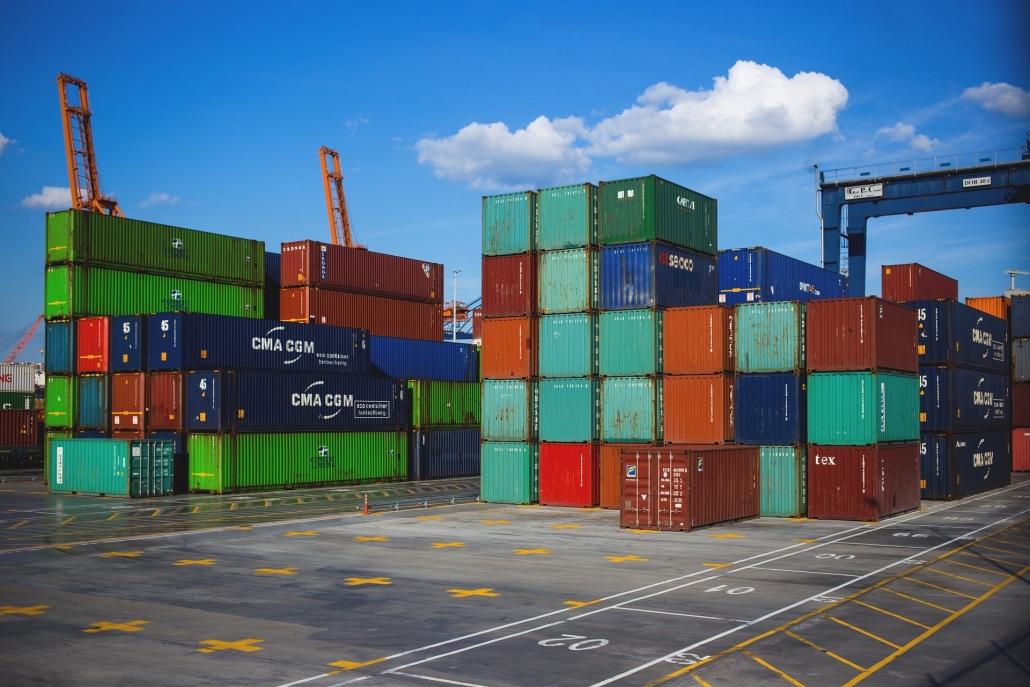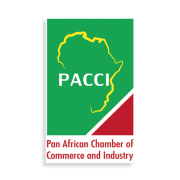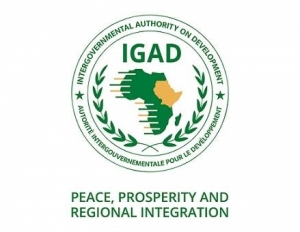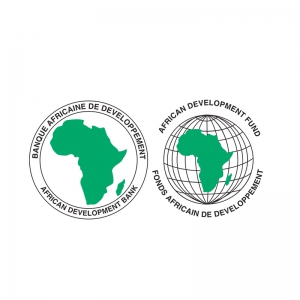Project Rationale
Despite steady increases in trade volumes and complexity in recent years, the IGAD region continues to experience substantial cross border and business environment related bottlenecks along its transport corridors. These include border delays occasioned by complicated documentation requirements, infrastructure congestion, smuggling, fraud, and security-related problems, which result in increased trade costs and high prices for consumers. These “hidden” costs of trade negatively affect the cost of doing business and economic development along the trade corridors and beyond in the IGAD member nations.
Facilitating trade and promoting private-sector participation in economic development are therefore essential to hasten the transformation of transport corridors into full-fledged economic corridors. The economic corridor approach emphasizes the linking of infrastructure improvements with real economic opportunities such as trade and investment. This includes efforts to address the social development and other outcomes of increased regional connectivity and cross-border trade. A recent analytical piece in the RDGE for the Ethiopia-Djibouti corridor, as well as a number of Analytical Briefs on regional integration that were prepared to inform the preparation of the Eastern Africa Regional Integration Strategy Paper (EA-RISP), as well as the Bank’s Regional Integration Strategy Framework (RISF 2018-25), also confirmed the need for improved trade facilitation for enhanced cross border trading, private sector competitiveness, and regional growth agenda.
In this regard, the PACCI and IGAD are each found to have prioritized and clearly articulated the need to design and implement measures that improve trade flows and competitiveness through better participation and capacity of the private sector, notably the SMEs along transport corridors within the neighboring countries. To transform these corridors from transport conduits for overseas imports and exports into economic corridors, some IGAD region countries have also identified the need to complement trade facilitation and business environment reforms together with improved business support services that focus on the route linking Ethiopia and Djibouti and Ethiopia and Somaliland.
For PACCI, the key role in this process includes identification of trade-related bottlenecks and business environment issues that affect the private sector, including the needed capacity building programs for private sector operators in understanding and adhering to the rules and procedures of dealing with trade facilitation procedures and capacity of the MSMEs and other private sector agents in creating better value addition as well as participation in the value chain of economic activities along the corridor. In addition, it also works to enhance business and trading environment for private sector operators through its mandate and role of advocacy on behalf of its members.
The complementary yet key role of the IGAD, in this process includes the development of coordinated and harmonized trade policy and trade facilitation procedures, identification and advocacy for the removal of recurring NTBs, institutional capacity building and awareness creation to different stakeholders along the corridors such as CSOs, customs officials and trade policymakers, officials of OSBPs and the like.
Consortium of Partners Introduction
IGAD - Intergovernmental Authority on Development

The Intergovernmental Authority on Development (IGAD) was created in 1996, with a revitalized mission and superseding the former Intergovernmental Authority on Drought and Development (IGADD) that was originally founded in 1986. The mission of the IGAD is to assist and complement the national level efforts of its eight Member States namely Djibouti, Ethiopia, Kenya, Somalia, Sudan, Uganda, Eritrea and South Sudan) that are meant to achieve the following through increased cooperation: i) Food Security and environmental protection; ii) Promotion and maintenance of peace and security as well as humanitarian affairs, and iii) Economic cooperation and integration. The vision of IGAD is to be a premier regional organization for achieving peace, prosperity and regional integration among its member countries.
Within the above context, IGAD’s institutional documents clearly articulate that the objectives of IGAD (which is one of the eight RECs recognized by the AUC) include, among many1 the following: i) Promote joint development strategies and gradually harmonize macroeconomic policies and programs in the social, technological and scientific fields; ii) Harmonize policies with regard to trade, customs, transport, communications, agriculture, and natural resources, and promote free movement of goods, services, and people within the region; iii) Create an enabling environment for foreign, cross-border and domestic trade and investment; iv) Develop and improve a coordinated and complementary infrastructure, in the areas of transport, telecommunications and energy in the region; v) Promote and realize the objectives of the Common Market for Eastern and Southern Africa (COMESA) and the wider African Economic Community.
PACCI - Pan African Chamber of Commerce and Industry

PACCI is an international organization established in 2009 representing over 20 million businesses in Africa through 51 members(42 national associations of chambers of commerce and industry and 4 sub-regional chamber organizations, 5 industry associations). PACCI acts as the eyes, ears and voice of the business community at AU level. More than 95% of these businesses are small and medium sized enterprises (SMEs). To keep pace with the ever-evolving continental trade landscape, PACCI actively participated in all the technical advisory committee meetings related to the AFCFTA negotiation. PACCI organized three biennium conferences under the theme ‘Africa Prosperity’discuss the challenges and opportunities of the AfCFTA with government officials, lawyers, traders and company representatives from various industries.
The efforts of a remarkably large and qualitative group of African business and trade experts has allowed PACCI to provide the AUC Secretariat in Addis Ababa and African government trade officials with practical input on ways to engage the private sector in the implementation of the AfCFTA. With the support of the UNECA/ATPC, PACCI supported the interregional pilot projects on advancing the concept of the Single Window, the publishing of the SW implementation guide, the cooperation agreements to collaborate with the African Alliance for Electronic Commerce to implement the African portal for foreign trade aimed at boosting intra-African trade.
Funded By
Upcoming Updates:
- COVID-19 Project Mitigation
- Project scope and timeline updates

